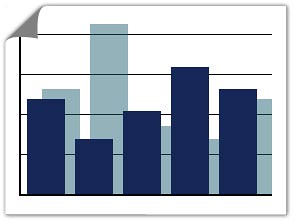
Another reason to avoid Metro's "survey" trickery.
I wonder how this incident would have been recorded had it been received via email or phone.
Via @StyxRiverGynoid
When WMATA announced the recent public hearings about the General Manager's proposed budget, the Accessibility Advisory Committee (AAC) met in "emergency" session, preempting the MetroAccess subcommittee meeting that was planned that evening.Other items:
One of the issues raised at that meeting was how the disability community, faced with even more onerous fare increases, could participate in the public hearings that would be held to discuss the budget proposal.
For many of the community, it would cost $14 round trip to use MetroAccess to get to those meetings, a price that would be hard to justify for many. Suggestions were offered by the AAC, including reduced fares for trips to and from the meetings, but in the end WMATA decided to open the phone banks and allow submissions of comments via email.
This was touted as being a way to make the meetings accessible, for members of the community to participate (whilst ignoring the implications that the MetroAccess fares themselves may be a barrier to participation in the first place).
But in reality, the generosity of WMATA in making these other methods to comment available benefited them more than it benefited the community.
Board members were at the public hearings, and were confronted by the words and emotions of those speaking. It was direct, and every voice was heard and had an impact.
Those comments filed by email, or on the phones, won't be heard, or have that impact - although WMATA will make those available for people *if they want to hear/read them*, the Board won't, by by default, hear or read them.
Instead, WMATA will summarize the comments received by phone or email. In doing so, they'll categorize the comments, stripping them of the actual words, the emotions, the energy, and boil it all down to sterile numbers with vague classifications that, to WMATA's benefit, dilutes the comments into just more statistics.
What WMATA will give the Board will go something like this, a report regarding the Town Hall meetings of Fall 2011:
http://www.wmata.com/accessibility/advocacy_policy/aac_docs/Town%20Hall%20Comment%20Stats.pdf
It's an accurate summary of the comments received, but it doesn't tell the readers what the comments were - what experiences did people cite, what incidents did they raise in complaint, what suggestions did they make?
WMATA's "generosity" in providing these "accessible" methods for customers to provide feedback serves WMATA by allowing them to distil the comments down into numbers, stripping out the context and content in such a way the Board doesn't hear the people who commented (without effort on their part to dig up transcripts and recordings themselves), all they see are the numbers.
Like most statistics WNATA produces, those statistics are likely to be "reconciled" - raw data seems to be anathema for WMATA to release (as a member of the RAC earlier this year discovered, and ended up resigning over).
The Board is dependent on WMATA for the data the Board uses in making its decisions. Those members who attended the public hearings got to hear real riders telking real stories of real experiences, raising real issues they felt so strongly about they took the time to go to the meetings to speak up.
The number of phone and email complaints is likely to be much higher than those who made it to the meetings - but WMATA will simply reduce them down to numbers - much more preferable for them isn't it?
- Three sites considered for Potomac Yards station (WAMU)
- 8.5 months for some escalators? Apparently a spokesman knows more than an escalator expert!!(WaPo)
- Anti-harassment campaign launches (WMATA)









 Oct. 11, 2012
Oct. 11, 2012 February 21, 2012
February 21, 2012 March 4, 2010
March 4, 2010




